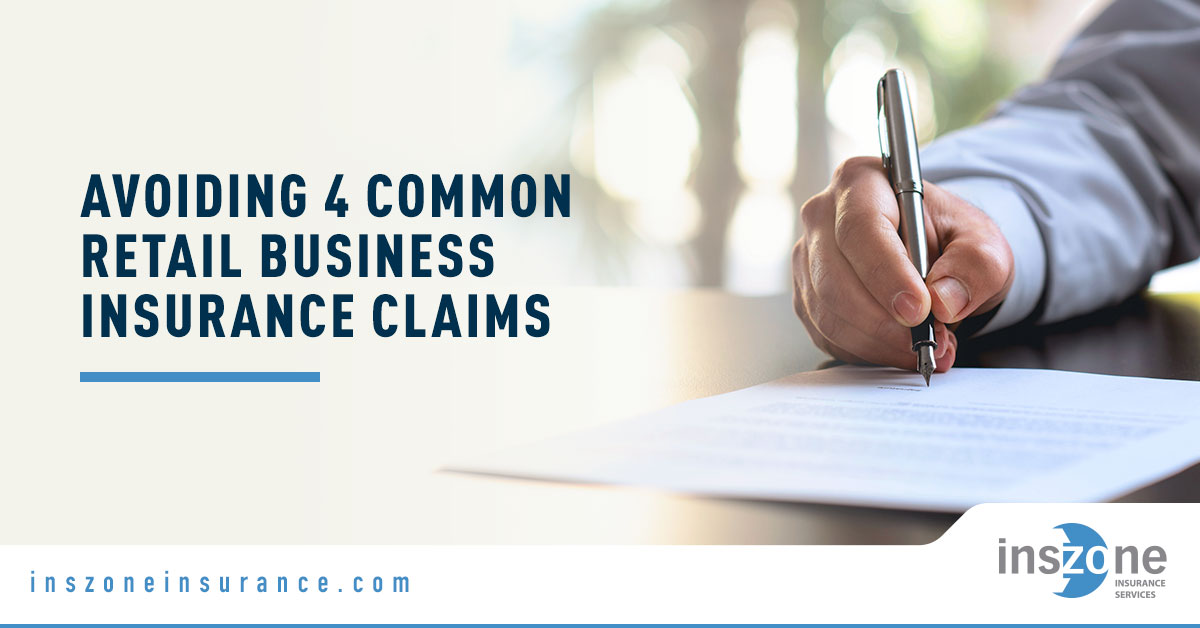If you own a retail store or manage any kind of merchandise-selling operation in the United States—whether on the mainland or in U.S. territories (such as Puerto Rico, Guam, the U.S. Virgin Islands, Northern Mariana Islands, and American Samoa)—you need to understand the risks and responsibilities associated with running a retail business.
Retailers face a variety of challenges that can lead to costly claims, including accidents, negligence, injuries, theft, and natural disasters. These events can put a significant financial burden on business owners—especially if they are found liable for damages.
Insurance is your primary financial shield. While it won’t stop disasters from happening, the right policy can help you shoulder the costs if they do. By understanding the most common types of claims and how to mitigate them, you can protect your business, your customers, and your reputation.
What Are the Most Common Types of Retail Insurance Claims?
Below, we break down the four major categories of insurance claims that retail businesses in the U.S. and its territories frequently face. Use these insights to strengthen your risk management plan.
1. Why Is Product Liability a Major Concern?
- Definition: Product liability covers legal costs and damages if a defective product sold at your store causes injury or property damage.
- Impact: A single product-related lawsuit can ripple through the entire supply chain, making it costly and time-consuming for all involved.
- Reputation Risk: Claims—whether valid or not—can tarnish your brand if not swiftly and effectively addressed.
- Action Steps:
- Implement rigorous quality control measures to ensure merchandise meets safety standards.
- Promptly remove and recall any products reported to be defective.
- Review product liability coverage in your insurance policy to confirm it meets your exposure level.
2. How Can Slips, Trips, and Falls Impact Your Retail Business?
- Definition: These accidents typically occur when store pathways become blocked, slippery, or otherwise hazardous.
- Potential Costs: Customers (and even employees) can file expensive liability claims if they are injured on your premises.
- Prevention Tips:
- Regularly inspect aisles, walkways, and shelving for hazards.
- Maintain an employee checklist for routine clean-ups and store organization.
- Clean spills immediately and use appropriate signage indicating wet or slippery floors.
- Ensure exterior areas have proper lighting and weather-appropriate measures (e.g., mats, signage).
- Insurance Coverage: General Liability insurance typically helps cover costs if your business is accused of causing customer injury or property damage.
3. Where Are You Most Vulnerable to Retail Theft and Shoplifting?
- Definition: Retail theft includes both organized shoplifting rings and crimes of opportunity, as well as employee theft.
- Latest Data (as of March 2025): According to the National Retail Federation, retail shrink—primarily driven by theft—remains a multi-billion-dollar problem, with losses exceeding $60 billion annually across the United States.
- Risk Reduction:
- Inventory Control: Track incoming and outgoing merchandise to quickly identify missing items.
- Electronic Tags: Place tags on merchandise to trigger an alarm if items leave the store before deactivation.
- Adequate Staffing: Have enough employees on the floor to discourage shoplifters.
- Entrance Alerts: Install a bell or chime to notify staff when customers enter or exit.
- Security Cameras: Monitor storage areas, the sales floor, and registers to deter theft and gather evidence if needed.
4. When Do Weather and Fire Pose the Greatest Threat?
- Definition: Weather damage includes storms, flooding, hurricanes, or other natural events that can harm your building and inventory. Fire damage can occur from faulty wiring, arson, or accidents.
- NFPA Insights: The National Fire Protection Association reports that U.S. fire departments respond to thousands of fires in retail properties each year, costing more than $600 million in property damage annually.
- Preventive Measures:
- Routinely inspect and maintain electrical systems and facilities.
- Have a plan for severe weather events common in your region (e.g., shutters, flood barriers).
- Install sprinkler systems, especially in stockrooms where combustible materials are stored.
- Keep fire extinguishers accessible and ensure alarms are functional.
- Train staff to keep exits, sprinklers, and alarms unobstructed at all times.
- Insurance Coverage: Commercial Property insurance can help cover building repairs or replacement costs if a covered disaster occurs. This is particularly crucial in storm-prone or fire-prone areas of the United States.
How Can You Safeguard Your Retail Operation with Insurance?
- Commercial Property Insurance: Covers damage to your building and contents from events like fires, storms, and vandalism.
- General Liability Insurance: Helps pay legal costs if your business is found liable for injury or property damage.
- Product Liability Insurance: Protects against claims of injury or damage from a defective product you sold.
- Workers’ Compensation: Required in most U.S. states and territories, providing medical and wage benefits to employees injured on the job.
- Business Interruption Insurance: Helps cover lost income if you must temporarily close due to a covered loss, such as severe weather or a fire.
Who Can Help You Navigate Retail Insurance Options?
- Consult a specialized insurance provider that understands the unique risks of retail operations.
- Ask for a customized policy package to address common exposures and any unique risks specific to your region or store type.
- Contact local or national insurance agencies with extensive retail experience for expert guidance.
- If you’re a retail business owner and would like to learn more about optimal coverage, consider reaching out to an agency like Inszone Insurance for personalized assistance.
Outbound Links and Sources
- National Retail Federation – Statistics on retail theft and losses.
- National Fire Protection Association – Data on fire incidents and prevention tips.
- U.S. Small Business Administration (SBA) – Guidance on small business insurance basics.
- Inszone Insurance – Information on business insurance coverage options.


